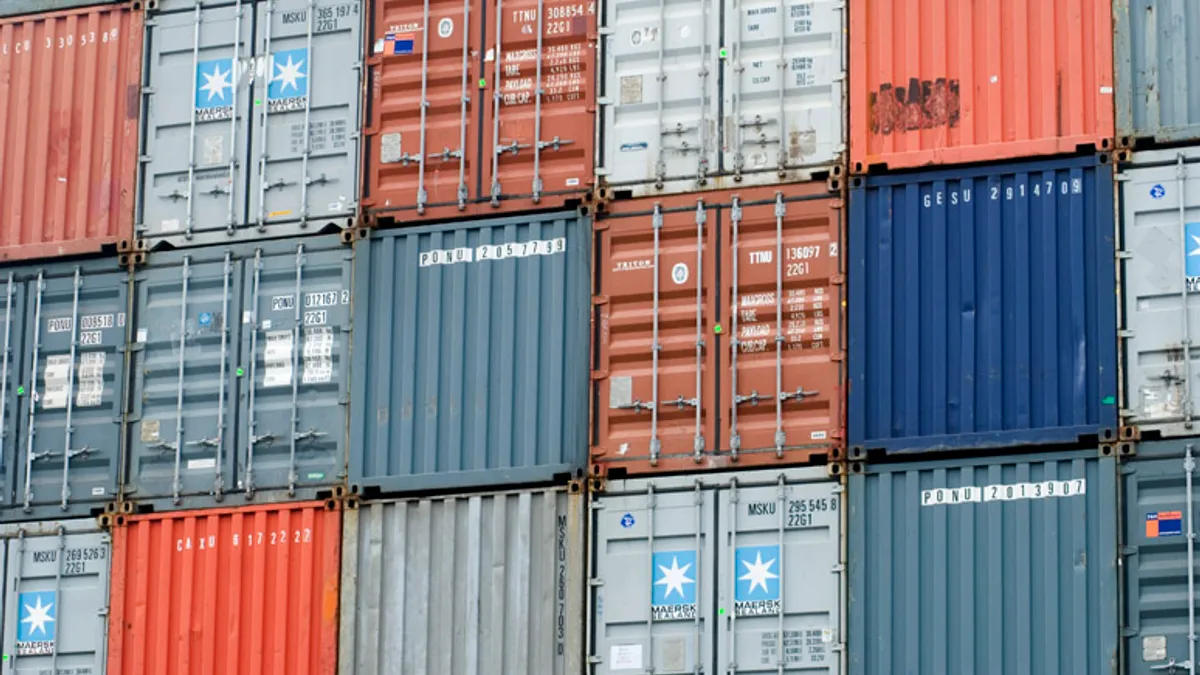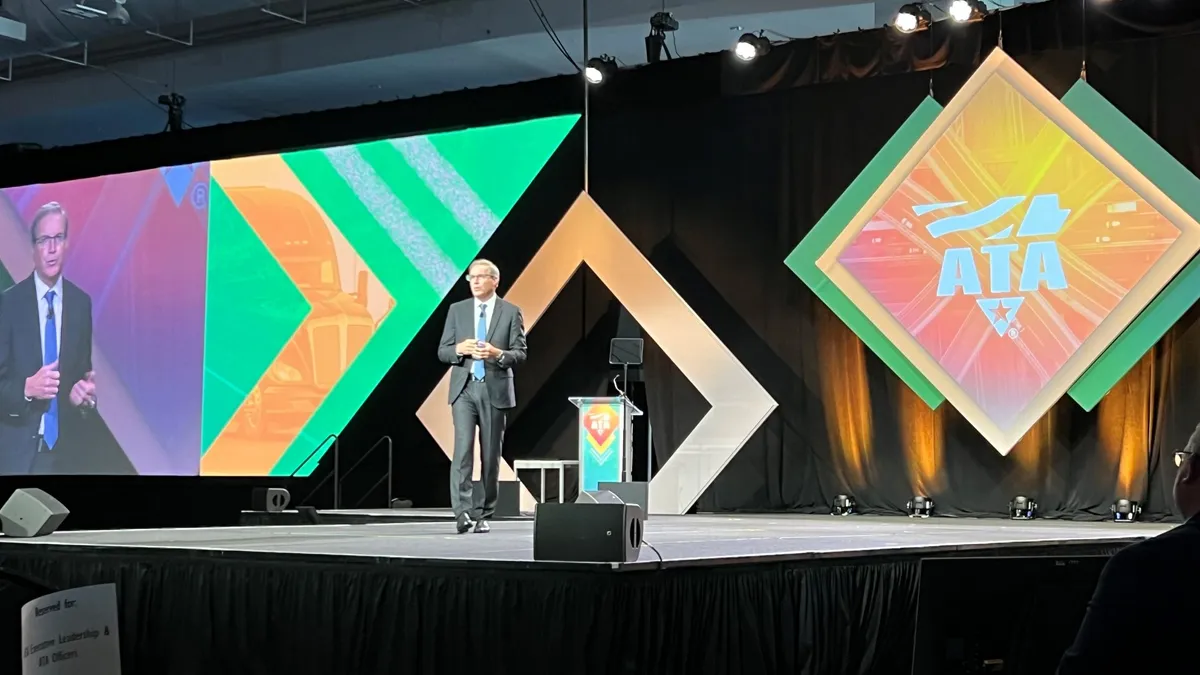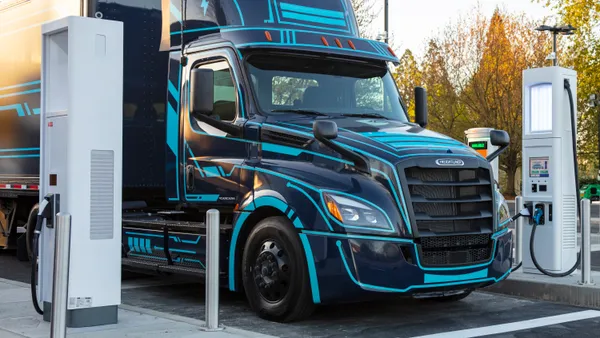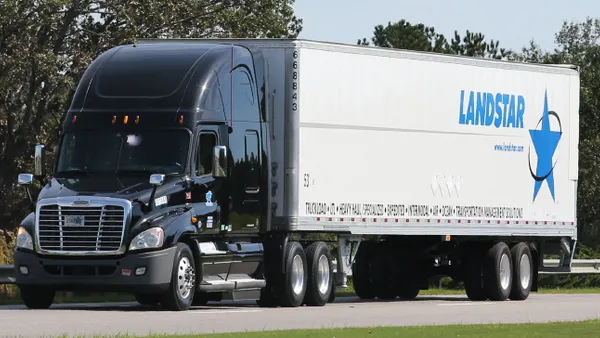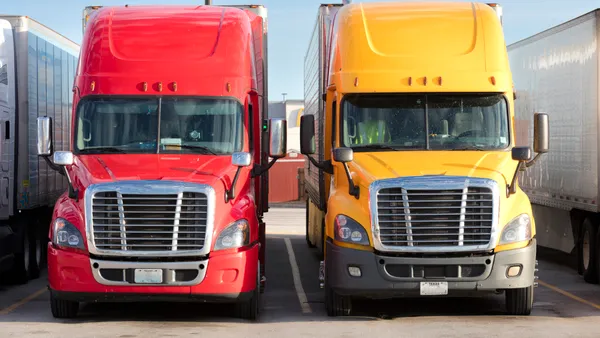Dive Brief:
- The average charge per container for detention and demurrage fees is $200 or more for 80% of respondents in a survey by the Harbor Trucking Association and TradeLanes, released Monday, conducted on HTA members. That does not include other related charges, such as chassis fees.
- "Carriers are also levying charges on the actual commodity shippers," particularly due to issues around earliest return date, TradeLanes Revenue Leader Reese Giangola said via email. Shippers may also incur costs from detention and demurrage fees, if a trucking firm passes them on. Whether that occurs usually depends on the relationship between the customer and the trucking company, as well as the terms of the contract between the two parties, HTA CEO Weston LaBar said.
- HTA members disputed more than 3 million detention and demurrage charges in 2020, according to the organization. The majority of survey participants (65%) said the most common reason for disputes was "no available appointments." The next most-cited reason was gate congestion.
Dive Insight:
Record volumes at ports have stressed the supply chain for months, creating container shortages, clogging ports, and hiking dwell and truck turnaround times. These coronavirus-driven market shifts have "exposed and deepened" factors that cause what the trucking industry insists are "unreasonable" detention and demurrage charges, "but this is not a unique issue to COVID," LaBar said.
LaBar pointed to the creation of the shipping alliances as a starting point for when detention and demurrage became an escalating problem. As ocean carriers made changes to create efficiencies for themselves, it created inefficiencies on the land side of the supply chain.
Last November, the Federal Maritime Commission began investigating those alliances, and planned to meet with the CEOs of six ocean carriers in December. But the FMC's power is limited, as it cannot create regulation, only enforce it.
Detention and demurrage disputes are unlikely to be resolved in trucking firms' favor, according to the HTA report — especially detention, which LaBar said some like to call the "blockbuster late fee of the industry." The adjudication process puts the onus on the party filing the complaint to prove their case, which LaBar said is an "onerous and costly administrative burden." Adjudication takes place one container at a time, he said, and a trucking firm may have more than 1,000 empty containers in its yard.
The fees were originally implemented to incentivize the flow of cargo, though now ports and trucking firms are betting on dual transactions to do that.
"Dual Transactions are one of the most important [key performance indicators] for driver productivity. Dual transactions also free chassis equipment for reuse and mitigate unnecessary detention on idle empties. Half of moves being single transactions are an impediment to cargo flow," according to the survey report.
Survey participants said potential solutions to the lack of available appointments included auto-cancelation of incomplete bookings, regular Friday and Saturday gates, off-dock container yards operated by the lines, and guarantees that empties can be returned to the original pick-up terminal.
The Port of Los Angeles has ramped up its technology offerings in the hopes of easing the struggles. The first phase of its new Control Tower, which will have data on rail performance and truck movement in the gateway, is set to go live this month. The application will give users information on dual transactions, which goes hand-in-hand with the port's efforts to monetarily incentivize terminals to facilitate them.


